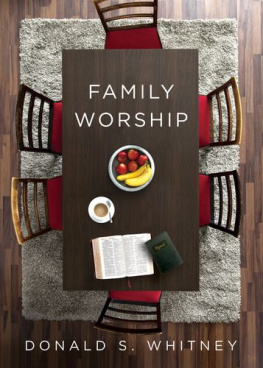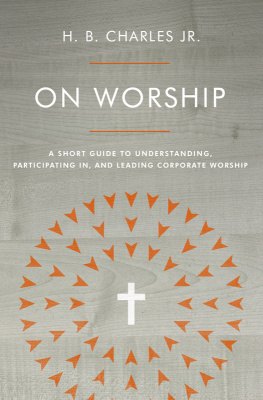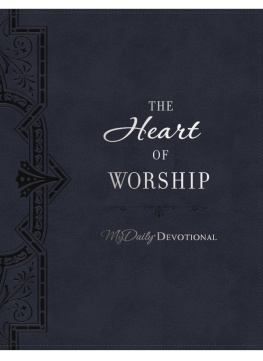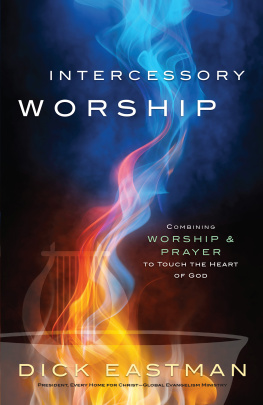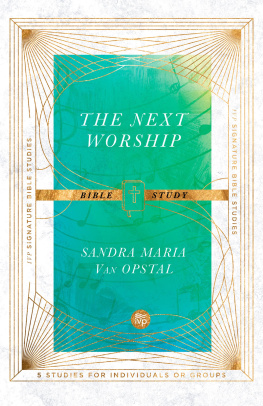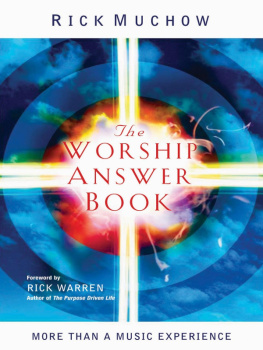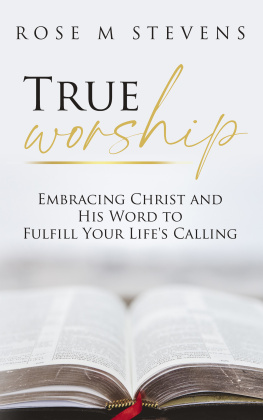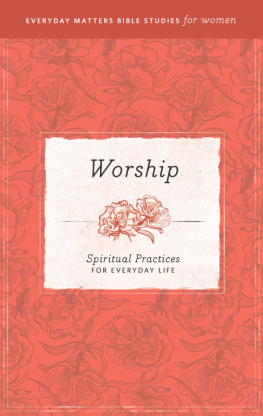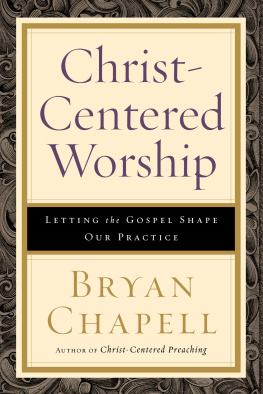Thank you for downloading this Crossway book.
Sign-up for the Crossway Newsletter for updates on special offers, new resources, and exciting global ministry initiatives:
Crossway Newsletter
Or, if you prefer, we would love to connect with you online:
Family Worship in the Bible
While there is no direct, explicit commandment in Scripture about family worship, the Bible clearly implies that God deserves to be worshiped daily in our homes by our families. Also, its practice is evident throughout the Bible. To quote Charles Spurgeon,
I trust there are none here present, who profess to be followers of Christ who do not also practice prayer in their families. We may have no positive commandment for it, but we believe that it is so much in accord with the genius and spirit of the gospel, and that it is so commended by the example of the saints, that the neglect thereof is a strange inconsistency.
Abraham
Evidence for the practice exists as far back as Genesis 18:1719 where the Lord and two angels appeared to Abraham in the form of dusty travelers. Abraham provided hospitality for them, and in the course of the conversation it began to dawn upon Abraham who his guests were, especially when one of them said that Sarah would soon find herself expecting the child promised by the Lord to the old, barren couple years before. As the three were leaving and heading toward Sodom and Gomorrah (which the Lord was about to destroy) the Lord spoke:
Shall I hide from Abraham what I am about to do, seeing that Abraham shall surely become a great and mighty nation, and all the nations of the earth shall be blessed in him? For I have chosen him, that he may command his children and his household after him to keep the way of the L ord by doing righteousness and justice, so that the L ord may bring to Abraham what he has promised him.
We have no reason to believe that much true worship of the true God existed in Abrahams day. In fact, after the Tower of Babel episode in But as the Lord did centuries earlier with Noah, God graciously chose to reveal himself to Abraham. And he did so in part, we are told, that [Abraham] may command his children and his household after him to keep the way of the L ord .
When would Abraham have done this? He did not have others to rely upon. He could not turn for help, as we can, to the ministries of a local church. The only way Abraham could have commanded his children to keep the way of the Lord was to teach the things of God at home.
Once Abraham and Sarahs miracle baby Isaac arrived, Abraham obviously did more than merely provide a good home education about keeping the way of the Lord. Abraham obviously led Isaac and the rest of his family in the worship of God.
This is plainly implied in the story of Abraham and Isaac in Genesis 22. God tested Abraham by telling him to offer up Isaac as a sacrifice. Early the next morning, the old man obeyed by getting everything togethereven splitting the wood himselfand heading for Mount Moriah. There he intended to sacrifice his only son to God because of his faith in God and his confidence that God could raise Isaac from the dead (Heb. 11:1719 ).
Those familiar with the story will know that the Lord intervened at the last moment and provided a ram to be sacrificed as a substitute for Isaac. But in Genesis 22:67, Abraham did not yet know that Lord would speak and spare him the agony of killing Isaac. The key element of this story in support of family worship actually happens before that dramatic climax. Isaac knew they were going to the mountain to offer a sacrifice and worship God (though not yet aware that the plan was for him to be the sacrifice). Abraham and Isaac had traveled for two days and had reached the foot of Mount Moriah. As they prepared for the final leg of their journey, we read that:
Abraham took the wood of the burnt offering and laid it on Isaac his son. And he took in his hand the fire and the knife. So they went both of them together. And Isaac said to his father Abraham, My father! And he said, Here I am, my son. He said, Behold, the fire and the wood, but where is the lamb for a burnt offering? (Gen. 22:67)
How did Isaac know that they did not have everything necessary for a sacrifice? How did he know that the worship of God involved fire, wood, and a lamb? Or that the lamb would be sacrificed as a burnt offering? Isaac knew these things because he must have long been familiar with sacrifices and the worship of God. Isaac must have often seen the wood split and piled for a sacrifice. He must have heard the crackle of the fire and smelled the burning flesh of a lamb offered to God before. Therefore, Isaac knew when an element of the worship of God was missing because Abraham must have frequently led his family in the worship of God.
Moses
Perhaps the best-known text in the Bible commanding families to teach their children is found in the words of Moses in Deuteronomy 6:47:
Hear, O Israel: The L ord our God, the L ord is one. You shall love the L ord your God with all your heart and with all your soul and with all your might. And these words that I command you today shall be on your heart. You shall teach them diligently to your children, and shall talk of them when you sit in your house, and when you walk by the way, and when you lie down, and when you rise.
There is much more here than family worship. But family worship can comprise an integral part of obedience to this command. Parents should teach the things of God to their children at every opportunity, as the verse says, and they should do so with their children, individually and collectively. But both in biblical times and today, the best time for parents to teach the things of God to their children on a consistent basis when all their children are present would be during a time of family worship.
Joshua
Have you ever considered how infrequently people gathered for congregational worship in the centuries comprising nearly the entire Old Testament? Even after the tabernacle and temple were built believers did not gather in large groups to worship God as often as is sometimes assumed. Only after the Babylonian exile, late in Old Testament history and hundreds of years after Solomon built the temple, did the local synagogues develop and people begin to worship God congregationally on a weekly basis. Of course, with the coming of Jesus and the outpouring of the Holy Spirit, most believers are now privileged to experience the riches of being in Gods family through regular participation in a local church.
But God was as worthy of worship in the days before regular congregational worship as he is now. Those who believed in and loved God, people such as Abraham, Isaac, Jacob, Joseph, Moses, Joshua, and others, wanted to worship God in their days as much as his people do today. Keep that thought in mind as you read the famous words of Joshua 24. This great successor of Moses had led Gods people into the Promised Land and been their leader for decades. Near the end of his life, he once more exhorted the Israelites to remain faithful to God. In Joshua 24:15 he declared,
And if it is evil in your eyes to serve the L ord , choose this day whom you will serve, whether the gods your fathers served in the region beyond the River, or the gods of the Amorites in whose land you dwell. But as for me and my house, we will serve the L ord .
Next page
